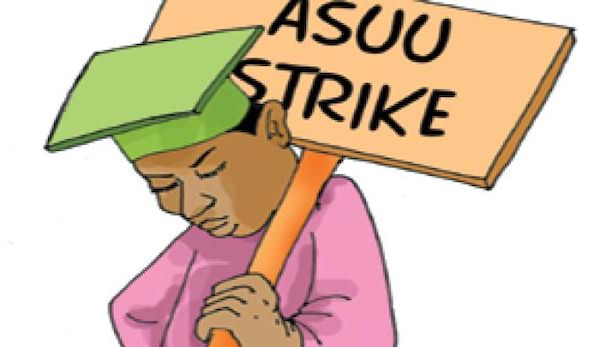By Halimat O. Shittu
Since February 14, 2022, university students have continued to stay at home, following an industrial action sanctioned by the Academic Staff Union of Universities (ASUU) over their many unmet demands. Although the union claims that the strike is in the interest of the students and the future of government-owned universities, the action has adversely affected the students; emotionally and physically.
The strike has continued to waste the time of the students who have other things to pursue aside from a university degree, especially as their inability to complete the academic programme would continue to hinder the process of pursuing other dreams.
Perils of violation of Abuja Master Plan
Support SMEs to propel national economy
Over the years, ASUU has become notorious for embarking on strikes to press home their demands. They braved many administrations, including military regimes to declare strikes that lasted for many months until their demands were met. Under President Muhammad Buhari’s administration, the union has gone on strike for more than four times, from 2017 to date. So far, undergraduates have lost at least 13 months to strikes from their academic calendar. By implication, the current final year students in federal and state universities have been delayed for two years, making them spend longer than the usual time to finish their studies.
Some of the demands of the university lecturers include the replacement of a salary payment system, Integrated Payroll and Personnel Information System (IPPIS) which is currently in use across the federation with another one developed by the academics: University Transparency, Accountability Solution (UTAS). Another demand by the union is the execution of the 2009 FGN/ASUU renegotiation agreement which included its members’ condition of service, the payment of the outstanding arrears of Earned Academic Allowance, EAA, the release of the agreed sum of money for revitalisation of public universities, among others.
Beyond these, it is believed that impasses between the federal government and ASUU have produced an adverse effect on the students. By frequently embarking on strikes, many consider ASUU to be selfish as they only consider the welfare of its members and not the students. The union has always been going on strike and with so many of their past demands met but there is still no improvement in the university system. The lecturers still trade sex for marks, they still sell their photocopied handouts and still collect bribes from students.
I see the strike as a ploy the union employs to exploit the students in getting what they want. Of course, many students would have no choice but to bear with the union as most of them can’t afford to study at a private university. Although the wise ones among the students have engaged themselves in skilled jobs, it is emotionally draining that most of them have left their studies unaccomplished, especially for the final year students.
Worst still, getting a job in Nigeria is difficult and the prolonged ASUU strike would only make the situation worse. Many employers often prefer graduates between the ages of 23 and 27. The age limit is now posing as an impediment to many prospective graduates who are still in school. On the other hand, the strike affects lecturers, too, as many of them are now working as chauffeurs.
By and large, it appears that strikes as the last resort for the university lecturers have been yielding little or no results. I, therefore, want to suggest that the lecturers’ union employ another alternative dispute resolution that is much more efficient.
It is noteworthy that while the efforts put in place to end the strike were on, some individuals and the general public are also making frantic efforts to address the ASUU conundrum. A crowd funding platform was initiated by a philanthropist and owner of Human Rights Radio, Ahmed Isah, to which the governor of Akwa Ibom State, Odom Emmanuel, donated N50 million. The effort was however rejected by the ASUU. A lawmaker in Cross Rivers, Hilary Bisong, had also donated N900,000 as a palliative to the striking lecturers at the University of Calabar. These are some impressive contributions by spirited individuals that would have gone a long way in solving some of the demands raised by the striking lecturers.
Halimat O. Shittu is a serving NYSC member in FCT

 Join Daily Trust WhatsApp Community For Quick Access To News and Happenings Around You.
Join Daily Trust WhatsApp Community For Quick Access To News and Happenings Around You.


